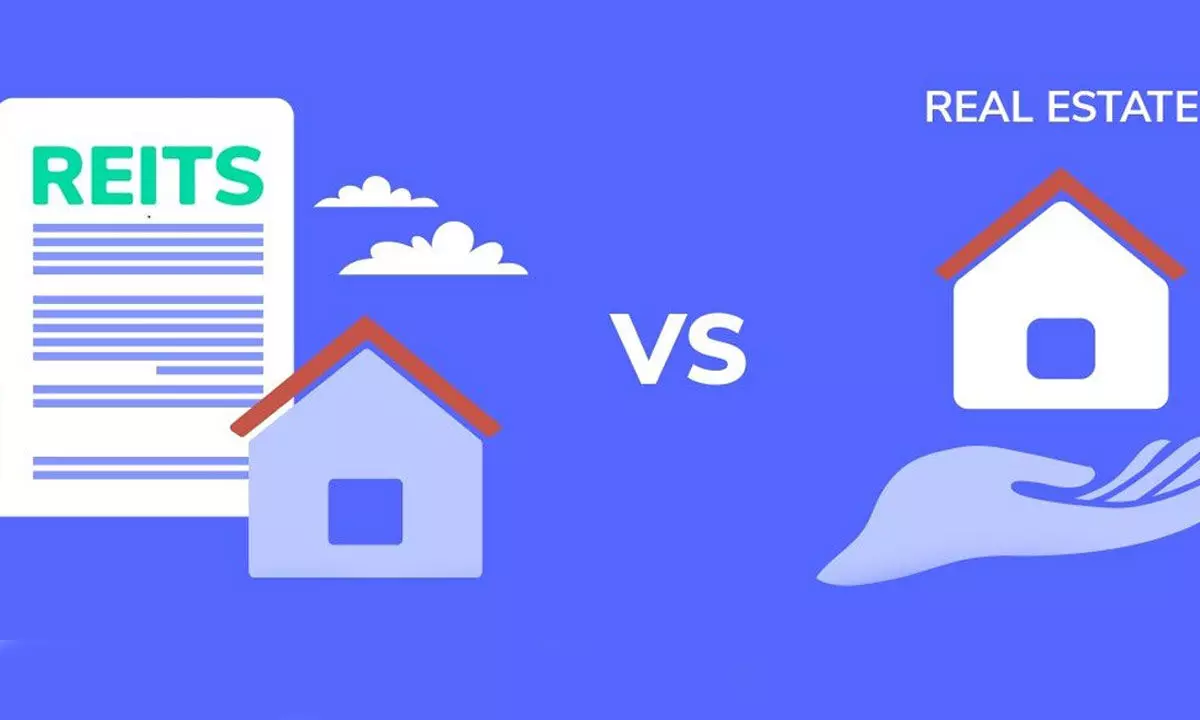What's the affordable form of investing in realty?
REITs made it possible for small investors and the bourgeoisie with fewer resources and capital to invest in real estate
image for illustrative purpose

What are Real Estate Investment Trusts and is it safe to invest in Indian REITs? - Vinod Goud, Saroornagar, Telangana
REIT also known as Real Estate Investment Trust is a company that owns or manages real estate properties. The returns earned by the REITs are shared as dividends among shareholders. REITs are another form of real estate investing, and this is a desirable investment for investors who cannot afford large amounts of funds to invest in real estate, including land and buildings. Only wealthy investors could afford to invest in real estate as a matter of course. With the advent of REITs, hoi polloi quickly realised the new investment possibilities.
Today, REITs have made it possible for small investors and the bourgeoisie with fewer resources and capital to invest in real estate. REITs and mutual funds are akin, as they allow various investors to pool their money and invest in professionally managed assets. The only difference between REITs and mutual funds is the investment type of underlying asset. In the case of REITs, the underlying asset is primarily real estate holdings or loans secured by real estate, whereas the underlying asset of mutual funds is usually equity, debt, gold, or a combination of these asset classes.
Like mutual funds that own a portfolio of stocks, REITs hold and manage a portfolio of rent-generating commercial buildings. The Securities and Exchange Board of India (SEBI) tightly regulates all listed and registered REITs in India. Similar to Exchange Traded Funds (ETFs), Investors can buy units of REITs from the stock market, as REITs are listed and traded on stock exchanges.
An investor needs a Demat account for buying/selling/trading in REITs. Investors who want to have exposure to real estate can indirectly invest in REITs through mutual funds, as some mutual funds invest in REITs. One can also invest in international REITs through a few Indian mutual funds. REITs generate a regular source of income for investors with little risk.
Non-listed REITs will come with higher risk. In terms of liquidity, investment in publicly traded REITs offers greater liquidity. Affordability is one of the main advantages of investing in REITs, as one can buy one unit of a REIT. Most of the income of REITs is rental income from commercial real estate, such as offices and shopping malls.
However, REITs must distribute at least 90 percent of their portfolio's net rental revenue as dividend income or interest income to their shareholders. The price of a REIT unit keeps changing like an equity share, depending on the performance and demand. Similar to equity shares and mutual funds, REITs generate two streams of income for investors - dividend income and appreciation of the unit value of REITs.
One can invest in REITs through the primary market whenever a REIT brings its IPOs. The Indian REIT market is still nascent, and investors have a limited choice in picking units in REIT. If you physically buy properties limited to a city or town, your investments are in land and buildings. Whereas investment in REITs will expose you to investments across multiple cities and towns.
Capital gains made on the sale of Indian REIT units are subject to short-term capital gains (STCG) tax @ 15 per cent if held for less than one year. Investments held over one year are subject to long-term capital gains (LTCG) tax at the rate of 10 per cent if the income exceeds Rs one lakh. Taxation on dividend income received from REITs is subject to getting a special tax concession from the government. If the REIT did not obtain a special tax concession, there is no income tax on dividends from REIT. Income tax on dividends from REITs is taxable in the hands of the investor if the particular REIT has obtained a special tax concession from the government.
During Covid-19, REITs have suffered from vacancy losses. The Work-From-Home phenomenon has also changed the fortunes of REITs. As a result, lakhs of square feet in commercial real estate remained unoccupied by corporate tenants. This risk badly affected the revenue of REITs.
One must analyse and research factors like vacancy risk, portfolio occupancy percentage, past performance and dividend yield before investing in REITs. Before putting your hard-earned money into new asset classes like REITs, take an authorised FInancial Advisor or CFP or Chartered Accountant's help if you are a novice investor.
(The author is a SEBI licensed Research Analyst. The alumnus of the Indian Institute of Foreign Trade (IIFT), he had held leadership roles at National Geographic, Reliance Radio Television Luxembourg, STAR TV, etc)

